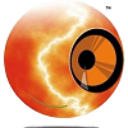Energy Management software: purchase guide
Energy Management or Energy Audit Software is designed to assist businesses and individuals in optimizing their energy consumption. These sophisticated computer tools play a crucial role in identifying areas of energy waste, proposing energy-saving measures, and tracking energy performance over time. They are part of an overall approach to sustainability and environmental responsibility, responding to growing concerns about climate change and energy efficiency.
These software programs analyze energy consumption data from various sources, such as electric meters, heating, ventilation, and air conditioning (HVAC) systems, and other energy-intensive equipment. The goal is twofold: to reduce operational costs associated with energy and to minimize carbon footprint. Moreover, by providing detailed reports and recommendations, these tools assist in complying with government regulations and achieving green certifications.
How Does Energy Management / Energy Audit Software Work?
Energy Management software operates by collecting and analyzing data related to energy consumption. They are often connected to Building Management Systems (BMS) and other sensors to gather real-time information. This data collection enables the creation of an accurate energy profile for the concerned establishment or structure.
Once the data is collected, the software analyzes it to identify trends, anomalies, and potential areas for improvement. Advanced algorithms and artificial intelligence techniques can be used to predict future consumption trends and suggest corrective actions. For example, the software might detect unnecessary high consumption during off-peak hours and recommend automatic adjustments to the HVAC system.
The software also allows for the simulation of the impact of different energy-saving strategies, like installing new energy-efficient equipment or modifying usage behaviors. These simulations help make informed decisions based on tangible data.
Main Features of Energy Management / Energy Audit Software
Energy Consumption Tracking: Ability to monitor real-time energy consumption to identify over-consumption areas.
Data Analysis: Use of algorithms to analyze consumption trends and identify saving opportunities.
Reports and Dashboards: Creation of customizable reports and interactive dashboards for easy visualization and understanding of data.
Alerts and Notifications: Alert system to report consumption anomalies and assist in quick corrective measures.
System Integration: Capability to integrate with other systems like BMS, smart meters, and IoT sensors.
Simulation and Modeling: Tools to simulate the impact of various energy-saving strategies and optimize investments.
Compliance and Regulatory Reporting: Assistance in complying with environmental standards and generating regulatory reports.
Free Alternatives
Although paid options typically offer more features and capabilities, there are also free alternatives that can be sufficient for basic needs. These include:
OpenEnergyMonitor: An open-source platform for energy monitoring, focused on community and knowledge sharing.
EMSA (Energy Management Software Application): A free tool offering basic functionalities for monitoring and analyzing energy consumption.
Home Energy Saver: Developed by the U.S. Department of Energy, this software is more suited for residential energy audits.
These alternatives can be a good starting point for small businesses or individuals looking to manage their energy consumption without a significant initial investment.



















